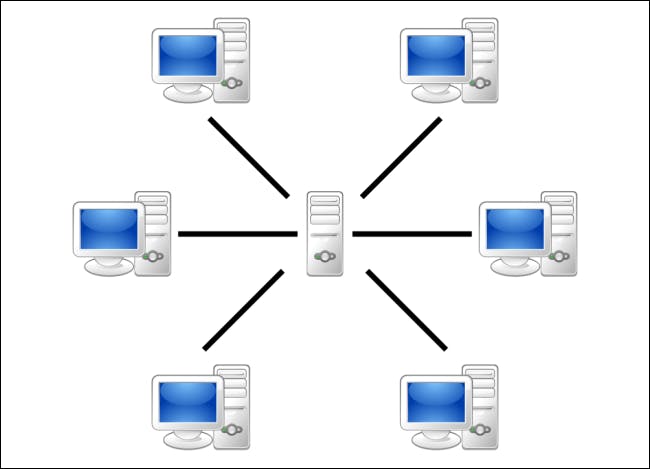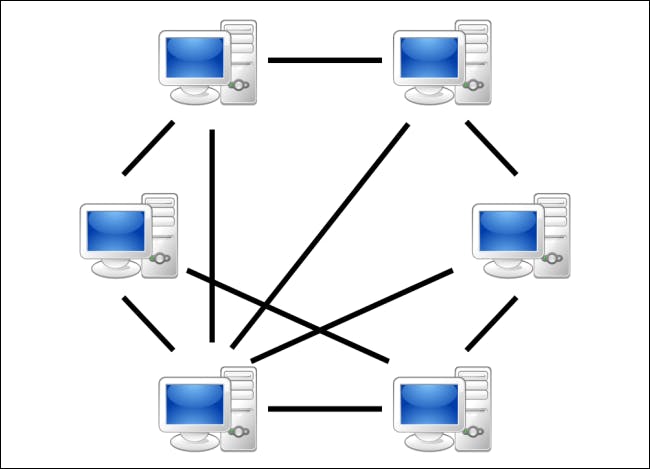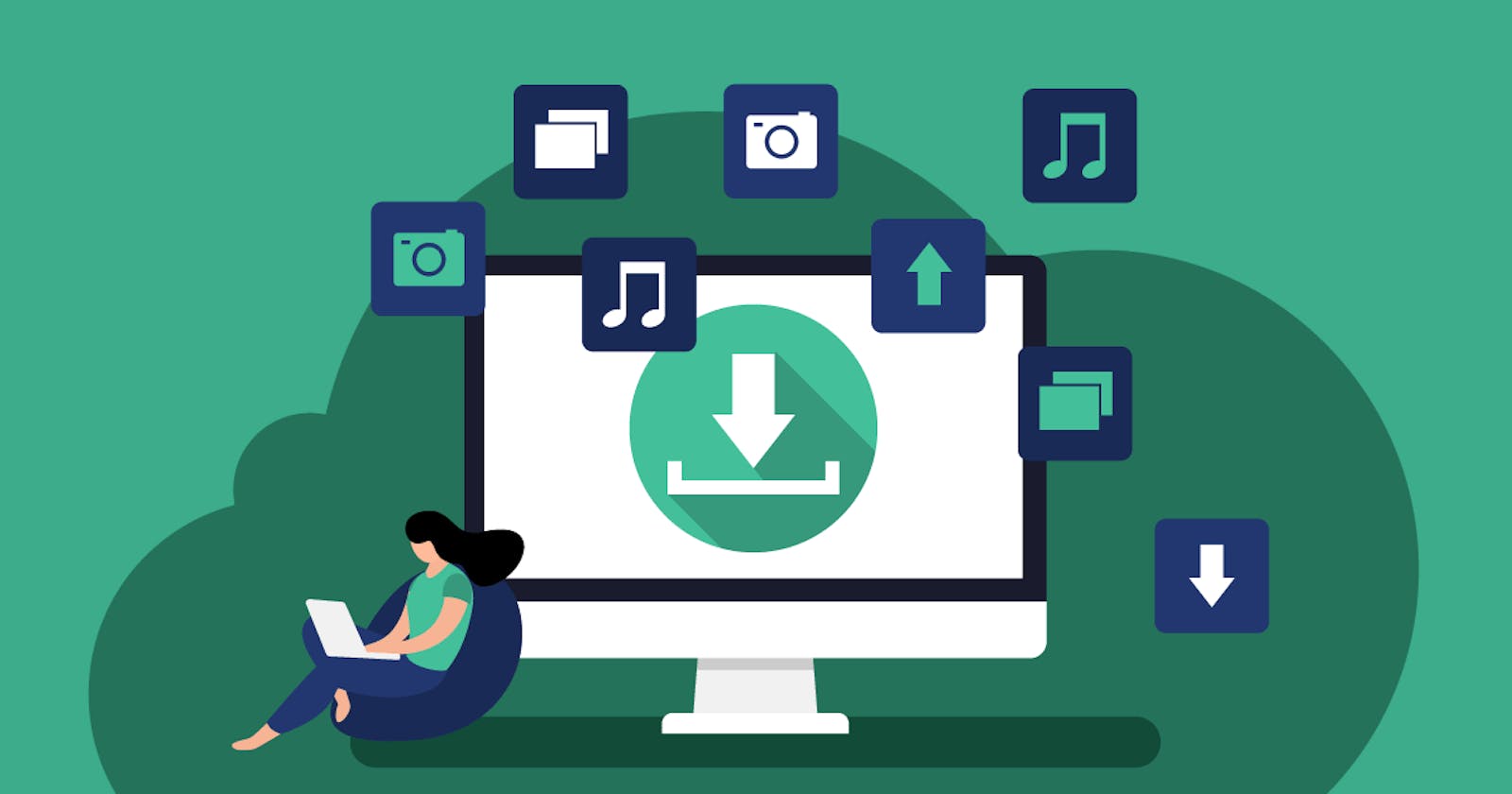How BitTorrent Protocol Works
When you download a web page like this one, your computer connects to the web server and downloads the data directly from that server. Each computer that downloads the data downloads it from the web page’s central server. This is how much of the traffic on the web works.

BitTorrent is a peer-to-peer protocol, which means that the computers in a BitTorrent “swarm” (a group of computers downloading and uploading the same torrent) transfer data between each other without the need for a central server.

Traditionally, a computer joins a BitTorrent swarm by loading a .torrent file into a BitTorrent client. The BitTorrent client contacts a “tracker” specified in the .torrent file. The tracker is a special server that keeps track of the connected computers. The tracker shares their IP addresses with other BitTorrent clients in the swarm, allowing them to connect to each other.
Once connected, a BitTorrent client downloads bits of the files in the torrent in small pieces, downloading all the data it can get. Once the BitTorrent client has some data, it can then begin to upload that data to other BitTorrent clients in the swarm. In this way, everyone downloading a torrent is also uploading the same torrent. This speeds up everyone’s download speed. If 10,000 people are downloading the same file, it doesn’t put a lot of stress on a central server. Instead, each downloader contributes upload bandwidth to other downloaders, ensuring the torrent stays fast.
Importantly, BitTorrent clients never actually download files from the tracker itself. The tracker participates in the torrent only by keeping track of the BitTorrent clients connected to the swarm, not actually by downloading or uploading data.
What is a torrent?
Torrents are simply ‘files’ that hold information related to other files and folders that are to be downloaded. When you download a movie torrent, this ‘torrent file’ contains necessary information that will let you get that movie.
A torrent file size is no bigger than a few kilobytes of data. However, these tiny files are able to commence the downloading of even bigger files and this is done through one system or another.
When you start downloading the files associated with that torrent, you might also see a file that is not familiar with those other chunks of data. Those are values that are used to verify a file. Now that we’ve helped separate fact from fiction, it is time to explain how these torrents work.
How do torrents work?
When you’re ‘torrenting’ a file, it pretty much means that you are transferring a file over the BitTorrent network which uses Peer-to-Peer (P2P) file sharing. A P2P network in the simplest explanation means a network that is created when two or more computers are connected to share resources without going through a separate server computer. Think of this as an ad-hoc network but a lot more complex.
When you download a torrent, the data is fetched in small bits and pieces that are a couple of megabytes in size. You initially connected to the original uploader who has all the data stored on their system. But as the number of users increases, one user ends up downloading tiny pieces from multiple users (called seeders) who now have data stored on their machine.
After your torrent client gets all the pieces, it then merges and them and verifies the integrity of the data. The end result is the files present on your storage and this is how torrent works.
Once you’re done downloading a torrent or even halfway, you can also become a seeder and let others fetch pieces from your machine. BitTorrent is all about sharing. Of course, it will consume your monthly data cap. This was a brief overview of how torrent works and dumps gigantic amounts of data onto your device.
What is the difference between seeds, peers, and leechers?
Before downloading any file, you will come across three terms that are very important inside the realm of torrenting; they are seeds, peers, and leechers. Just like we’ve explained the basic terms before in this discussion of how torrent works, we are going to clear the air and differentiate between these three terms.
What is a seed? A seed is a person that has the complete file with them and not bits and pieces lying around.
What is a peer? Peers are people who do not have the complete file but bits and pieces of them instead.
What is a leech? Leechers are individuals who download the actual files but do now allow other users to download those files from them, whether those files are in bits or in their complete form. In short, they do not share the love with others or maybe they don’t have enough data to spare.
Torrent Downloader
Torrent clients help transfer files from one system to another Torrent clients ranging from the likes of uTorrent, BitTorrent, and several others are a bridge that helps you get the files from other seeders and download them to either your mobile device or computer.
During this process, you do not have to move a single muscle as the torrent itself has all the necessary information where the bits and pieces of the ‘to be downloaded’ files are present on different computer systems. In simple terms, if you do not have a torrent client, then you will not be able to download the larger data associated with that torrent.
How to download torrents
You can start by visiting one of the popular torrent sites where you can find your desired torrent file or its magnet link.
Next, install any of the torrent clients mentioned above and load the torrent file in it. If you want a better idea, you can refer to a detailed guide on downloading torrents.
One good thing is that if you’re downloading multiple files using a torrent, you can choose which ones you want to download.
How to download torrents faster?
If you’re looking for faster downloads, you need a healthy torrent file. It’s the one which has a high number of both seeders and leechers. But of course, the number of seeders should be more than the leechers.
Should you continue to download torrents? Is it legal?
From a legal perspective, downloading a copyrighted TV show, movie, or even a game without actually paying for it is considered a crime. But, as torrenting is an activity that is widespread across the globe, users believe it to be harmless.
You can feel comfortable that there are various legal torrent sites that can give access to a plethora of content without getting into any copyright-related trouble.
Several countries do not have strict and concrete laws to prevent the download of pirated torrents and their respective files. Even torrent uploaders occasionally encourage users to purchase those specific files if their experience with that data has been positive.
Original posts can be found here and here. Full credits goes to the original authors.
